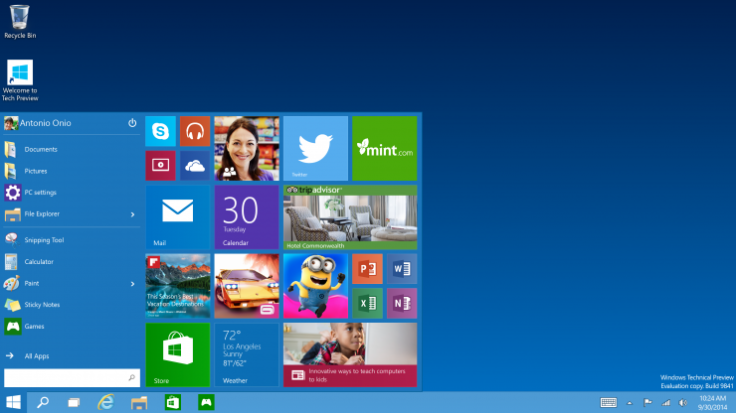Arrr! Pirates Won't Get A Free Upgrade To Windows 10

One of the most exciting aspects of Windows 10, Microsoft's upcoming operating system, is that current Windows users will get a free update, at least for the first year. Previously, upgrading from, say, Windows 7 to Windows 8, required a new license that could cost as much as $75.
But now we're hearing the free-upgrade offer doesn't apply to the millions of users running a pirated version of Windows -- despite Microsoft previously leaving the door open for non-licensed copies to get the update. Windows chief Terry Myerson on Friday cleared up the confusion in a blog post:
Microsoft and our OEM partners know that many consumers are unwitting victims of piracy, and with Windows 10, we would like all of our customers to move forward with us together. While our free offer to upgrade to Windows 10 will not apply to Non-Genuine Windows devices, and as we’ve always done, we will continue to offer Windows 10 to customers running devices in a Non-Genuine state. In addition, in partnership with some of our valued OEM partners, we are planning very attractive Windows 10 upgrade offers for their customers running one of their older devices in a Non-Genuine state. Please stay tuned to learn more from our partners on the specifics of their offers.
Users running pirated Windows might not get an update, but Microsoft might offer them a discounted license, as it has done in the past with recent Windows releases.
Microsoft's moving Windows to a more continuous Apple and Google-style update cycle not only benefits users, who get a more up-to-date system and newer features faster, but also Microsoft, which currently has to support a wide range of versions. If more users are on the latest version, then less work needs to be done to keep older versions safe and secure.
In some countries, you're more likely to come across a pirated copy of Windows than a legitimately licensed copy. Many of those users did not install the pirated copy themselves but purchased it from a vendor selling computers running stolen software.
Earlier this week, Microsoft announced five different flavors of Windows 10, including home, professional and mobile versions, continuing its practice of confusing customers with several slightly different licenses for its operating system and flagship product. With Myerson's blog post, it sounds like the company is backing off its desire to get everyone running the same version of Windows 10. The more things change at Microsoft, the more they seem to stay the same.
© Copyright IBTimes 2024. All rights reserved.






















